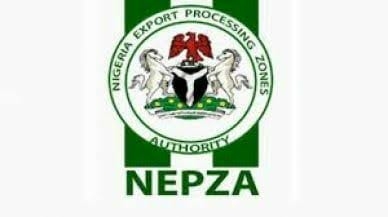The Nigeria Export Processing Zones Authority (NEPZA) has spoken out against some sections of the proposed Customs Service reform bill, claiming that they will cripple the country’s Free Trade Zones.
Giving the Customs Service the authority to make regulations in free zones, according to Mr Martins Odeh, Head, Corporate Communications, NEPZA, would weaken Nigeria’s special economic zones, according to a statement issued on Thursday in Abuja.
According to Odeh, NEPZA noted in its submission to the House of Representatives’ ongoing public hearing on the Customs reform bill that Free Zones are areas designated to serve as one-stop-shop investment hubs.
“Incentives are provided in the form of tax breaks, simplified Customs and Immigration processes, among other things, in order to attract investors.”
“If the provisions of the bill are allowed, the One-Stop-Shop concept, in support of which regulations were made for all active free zones with the involvement of the Nigerian Customs Service and all relevant stakeholders, would be eroded.”
“By establishing regulations for free zones, the Nigeria Customs Service would be setting a dangerous precedent, as other agencies would follow suit.”
Odeh stated that if the trend is not halted, it will result in either multiple regulations that may be contradictory, resulting in avoidable legal squabbles, or it will make enterprise registration unnecessarily difficult.
He went on to say that the proposed sections of the bill that sought to make Free Zones Customs-controlled zones sought to create antithetical Free Zones Customs Territory to the global free trade zone model.
While listing specific areas of the Bill that it finds objectionable, the Authority stated that it has contributed significantly to the national economy through the operations of the free zones.
Odeh stated that the Lekki Free Zone Quadrant, which includes the Lekki Free Trade Zone, Lagos Free Zone, Dangote Free Zone Enterprises, and the Alaro City Free Zone, as well as the Calabar Free Zone and Kano Free Zone, is an example of how Nigeria’s industrialisation is being accelerated.
According to him, Dangote Free Zone is a national asset with enormous potential for the Nigerian economy.
“Given Nigeria’s heightened insecurity as a result of the COVID-19 Pandemic, the introduction of new bureaucratic bottlenecks such as this proposed legal framework would only scare away investors and slow the free trade zone scheme.”
“One of the reasons for Nigeria’s low ranking on the World Trade Organization’s index of Ease of Doing Business has been identified as bureaucratic bottlenecks.”
“As a result, the free zone scheme seeks to address the problem of corporate investments that are characterized by bureaucratic challenges, multiple taxation, and conflicting regulations,” he added.
Odeh went on to say that NEPZA had allayed the Nigerian Customs Service’s concerns about revenue leakages by instituting proper customs procedures and regulations to guide investors operating in the zones.
He emphasized that this was done to avoid bureaucratic bottlenecks while also ensuring that all applicable laws, regulations, and guidelines were followed.
“These safeguards, according to NEPZA, can be found in its enabling Act as well as the regulations of the respective free zones.”
“As a result, the Authority urged the National Assembly to exercise caution by resisting the temptation to allow any legal framework that would cripple NEPZA and the free zone scheme,” Odeh said.

















Discussion about this post